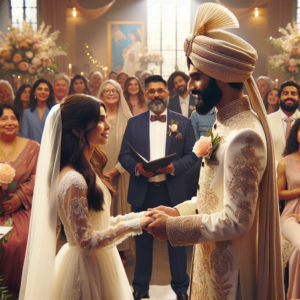Unprecedented Triumphs: The Groundbreaking Victories of Marriage Equality
[caption id="attachment_35112" align="alignnone" width="780"] Family Life[/caption]
In recent years, the movement for marriage equality has achieved unprecedented triumphs, marking a significant shift in societal norms and legal frameworks around the world. From historic court rulings to grassroots activism, the journey toward justice for LGBTQ+ individuals has been characterized by resilience and determination. This article explores the historical context of marriage equality, landmark court cases, the role of activism, key legislative changes, societal impacts, and future challenges and opportunities in the ongoing quest for equality.
The Historical Context of Marriage Equality: A Journey Towards Justice
The fight for marriage equality has deep roots in the broader struggle for LGBTQ+ rights, which began in earnest during the mid-20th century. Early activists faced significant societal stigma and legal barriers, as homosexuality was criminalized in many jurisdictions. The Stonewall Riots of 1969 marked a pivotal moment, igniting a movement that sought not only to decriminalize same-sex relationships but also to secure equal rights, including the right to marry. Over the decades, various social movements, legal battles, and changing public perceptions have contributed to a gradual recognition of marriage equality as a fundamental human right. The journey has been fraught with challenges, but it has also been marked by significant milestones that have reshaped the landscape of civil rights.
Landmark Court Cases That Shaped the Marriage Equality Movement
Several landmark court cases have played a crucial role in advancing marriage equality, setting legal precedents that challenged discriminatory laws. One of the most significant cases was Obergefell v. Hodges (2015), in which the U.S. Supreme Court ruled that same-sex couples have the constitutional right to marry. This decision effectively legalized same-sex marriage across the United States, affirming that marriage is a fundamental right inherent to all individuals. Similarly, cases like Goodridge v. Department of Public Health (2003) in Massachusetts and Hollingsworth v. Perry (2013) further propelled the movement by dismantling state-level bans on same-sex marriage. These rulings not only provided legal recognition to same-sex couples but also catalyzed public discourse around LGBTQ+ rights, inspiring activists worldwide.
The Role of Activism in Achieving Marriage Equality Across the Globe
Activism has been the backbone of the marriage equality movement, with grassroots organizations and individuals tirelessly advocating for change. From early protests to modern-day campaigns, activists have employed a range of strategies to raise awareness and mobilize support. Organizations such as the Human Rights Campaign and GLAAD have played pivotal roles in lobbying for legislative changes and educating the public about the importance of marriage equality. Internationally, grassroots movements have emerged in various countries, often facing significant opposition. Activists have utilized social media to amplify their voices, share personal stories, and foster solidarity among supporters, demonstrating the power of collective action in the pursuit of justice.
Celebrating Key Legislative Changes That Advanced Marriage Rights
In addition to court rulings, legislative changes have been instrumental in advancing marriage rights for same-sex couples. Countries such as Canada, the Netherlands, and Spain were among the first to legalize same-sex marriage, setting a precedent that inspired others to follow suit. In the United States, the repeal of the Defense of Marriage Act (DOMA) in 2013 marked a significant turning point, allowing federal recognition of same-sex marriages. Many states subsequently enacted their own legislation to legalize same-sex marriage, reflecting a growing acceptance of LGBTQ+ rights. These legislative victories have not only provided legal protections for same-sex couples but have also fostered a more inclusive society, encouraging further advancements in LGBTQ+ rights.
The Impact of Marriage Equality on Society and Cultural Norms
The legalization of marriage equality has had a profound impact on societal attitudes and cultural norms. As same-sex couples gained the right to marry, public perceptions shifted, leading to greater acceptance of LGBTQ+ individuals and relationships. Studies have shown that marriage equality contributes to improved mental health outcomes for LGBTQ+ individuals, reducing stigma and discrimination. Furthermore, the visibility of same-sex marriages in popular culture has played a crucial role in normalizing these relationships, fostering empathy and understanding among the broader population. As marriage equality becomes more entrenched in societal norms, it challenges traditional notions of family and love, paving the way for a more inclusive understanding of relationships.
Looking Ahead: Future Challenges and Opportunities for Marriage Equality
Despite the significant progress made in the fight for marriage equality, challenges remain on the horizon. In some regions, backlash against LGBTQ+ rights has emerged, with attempts to roll back legal protections and undermine the gains achieved. Additionally, intersectional issues, such as race, gender identity, and socioeconomic status, complicate the fight for equality, highlighting the need for a more comprehensive approach to advocacy. However, opportunities for progress also abound. Continued activism, education, and coalition-building can help address these challenges, fostering a more inclusive society. As the global landscape evolves, the marriage equality movement must adapt and remain vigilant, ensuring that the rights of all individuals are upheld and celebrated.
The groundbreaking victories of marriage equality represent a monumental shift in the pursuit of justice for LGBTQ+ individuals. From historical struggles to landmark court cases and legislative changes, the journey has been marked by resilience and determination. As society continues to evolve, the fight for marriage equality remains a vital component of the broader struggle for human rights. By reflecting on past triumphs and acknowledging future challenges, we can work together to ensure that the principles of equality and justice are upheld for all individuals, regardless of their sexual orientation or gender identity.
